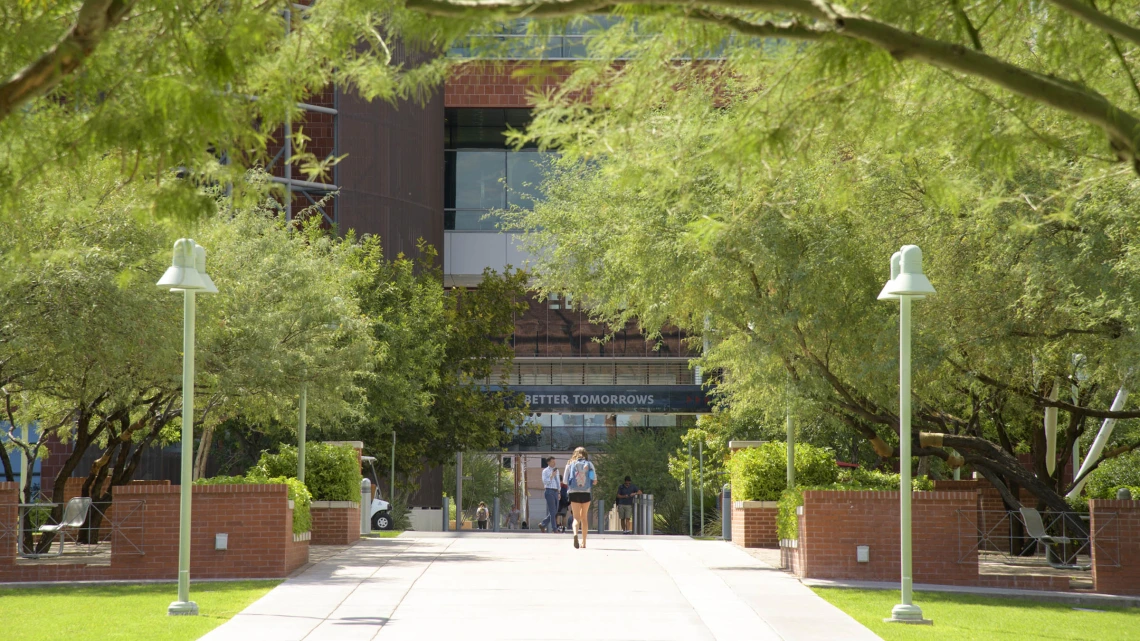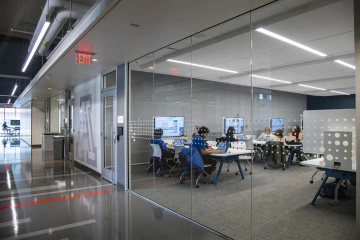Longest-lasting Pandemic Impact? A Stronger Health Sciences
Part two of a two-part series on how the pandemic intensified a sense of purpose and prompted lasting changes in all aspects of the Health Sciences mission.

The COVID-19 pandemic has brought many changes to the University of Arizona Health Sciences, not the least of which was the advancement of technology in healthcare and education.
Among the multiple ways the COVID-19 pandemic has altered the future of the University of Arizona Health Sciences, the increased value of technology has been the most widely experienced among the Health Sciences colleges – not only for training but for real-world application.

The pandemic highlighted and brought to the public’s mind the importance of public health as well as the expertise needed for end-of-life care.
Beyond biomedical research, the expanded use of technology during the pandemic significantly extended the reach of health care delivery and pointed the way forward in alleviating some degree of health care inequity.
“The pandemic helped level the playing field for many,” said Guy Reed, MD, dean of the College of Medicine – Phoenix. “For poor patients, for patients in rural communities, for those with limited access, the widespread implementation of telehealth has eliminated essential barriers and provided effective medical care.”
Reaching new heights out of pandemic depths
As the pandemic stretched health care resources around the world nearly to the breaking point, it became a period during which the importance and contributions of all health care professions were elevated – a development that will continue to expand the interprofessional aspects of improving health and wellness.
“The pandemic illuminated the role of public health in health promotion, protection and disease prevention globally,” said Iman Hakim MD, PhD, MPH, dean of the Mel and Enid Zuckerman College of Public Health. “In addition, it highlighted to the wider society the health disparities that exist in the United States and around the world. People with a passion for social justice are likely to see public health as a profession that provides opportunities to address health disparities.”

Meeting the challenges of the pandemic has helped make Health Sciences stronger than before.
With an eye to the future, a training program for a new kind of health care professional who can serve in multiple capacities was launched as well.
“During the depths of the pandemic, as the world was grappling with a shortage of health care professionals to respond to the crisis, the College of Pharmacy and College of Nursing rolled out a first-of-its-kind dual degree program that allows students to simultaneously earn Doctor of Pharmacy and Master of Science in Nursing degrees along with a family nurse practitioner certificate,” said Rick Schnellmann, PhD, dean of the College of Pharmacy. “This is the kind of forward-thinking that we believe will help us not only meet the challenges that we can see today, but also those like the pandemic that will be coming out of nowhere.”
Successfully turning challenges into opportunities
A once-in-a-lifetime health care crisis, the COVID-19 pandemic has inflicted widespread illness and death. It also has forced unprecedented changes – both temporary and lasting – in how governments, businesses, health care systems and educational institutions function as a result of such a significant event.
“I would venture to say that our response to the pandemic has set us apart from our peers at other academic medical centers,” said Michael D. Dake, MD, senior vice president for Health Sciences. “As health care professionals, researchers, educators, administrators and support staff, we have succeeded in using our years of training and countless hours of work not to simply survive the ravages of COVID-19, but to achieve a stronger future for Health Sciences and better health care for all.”

